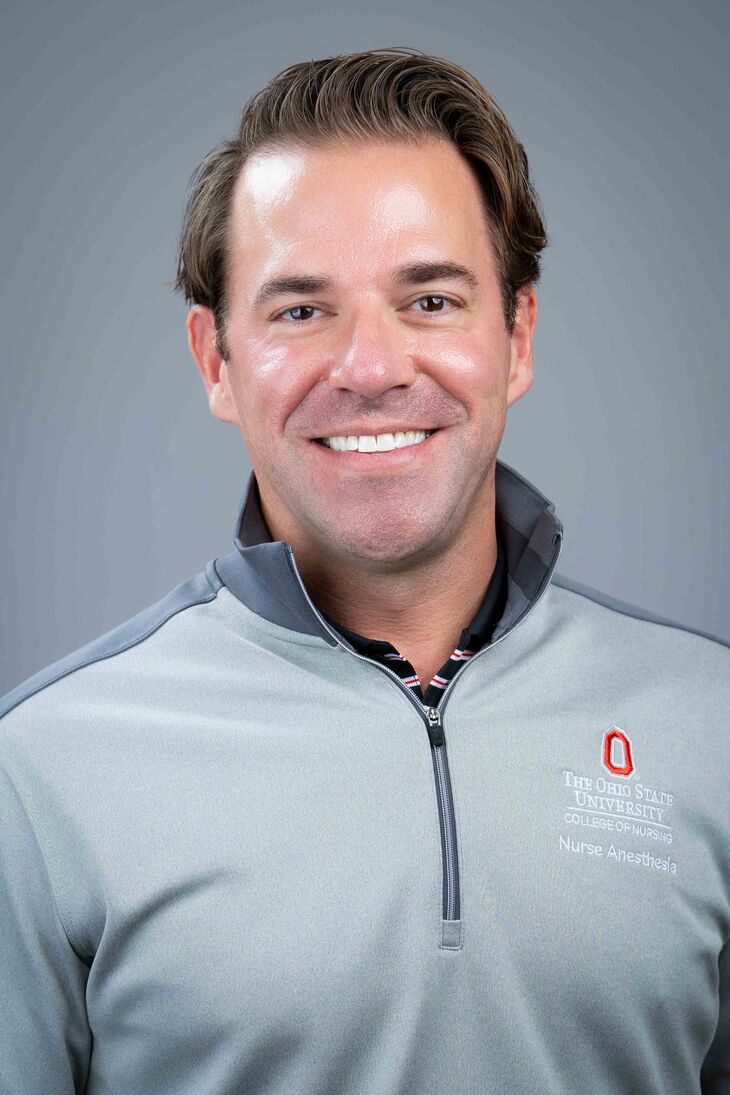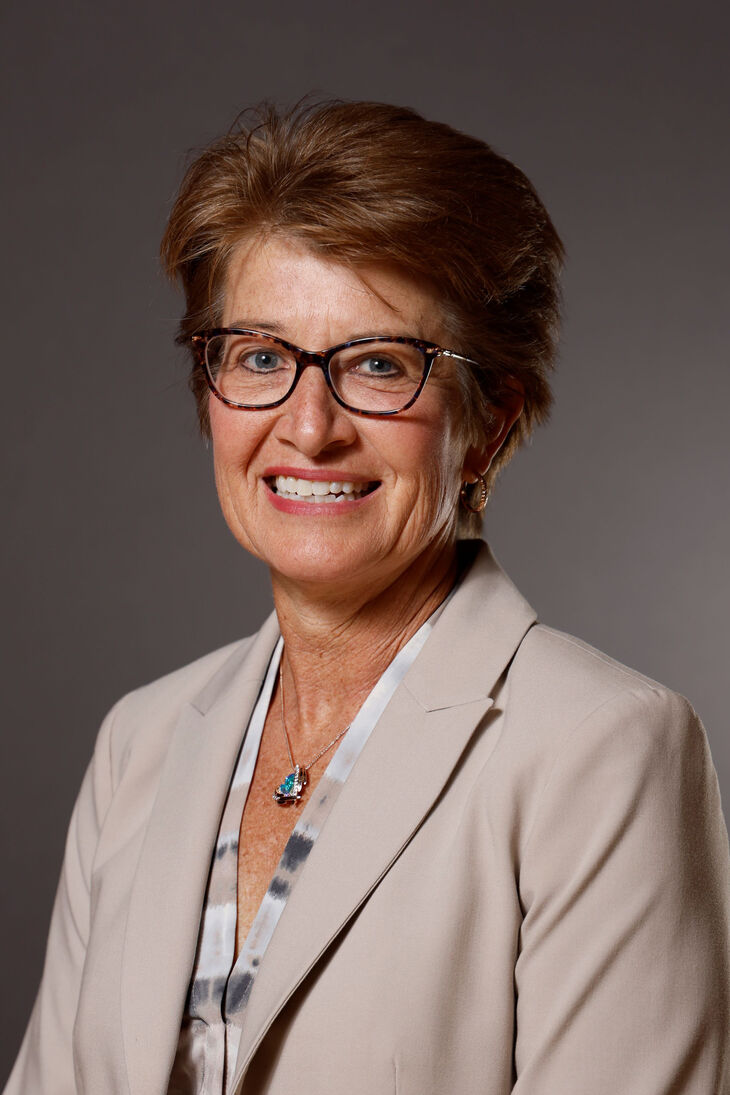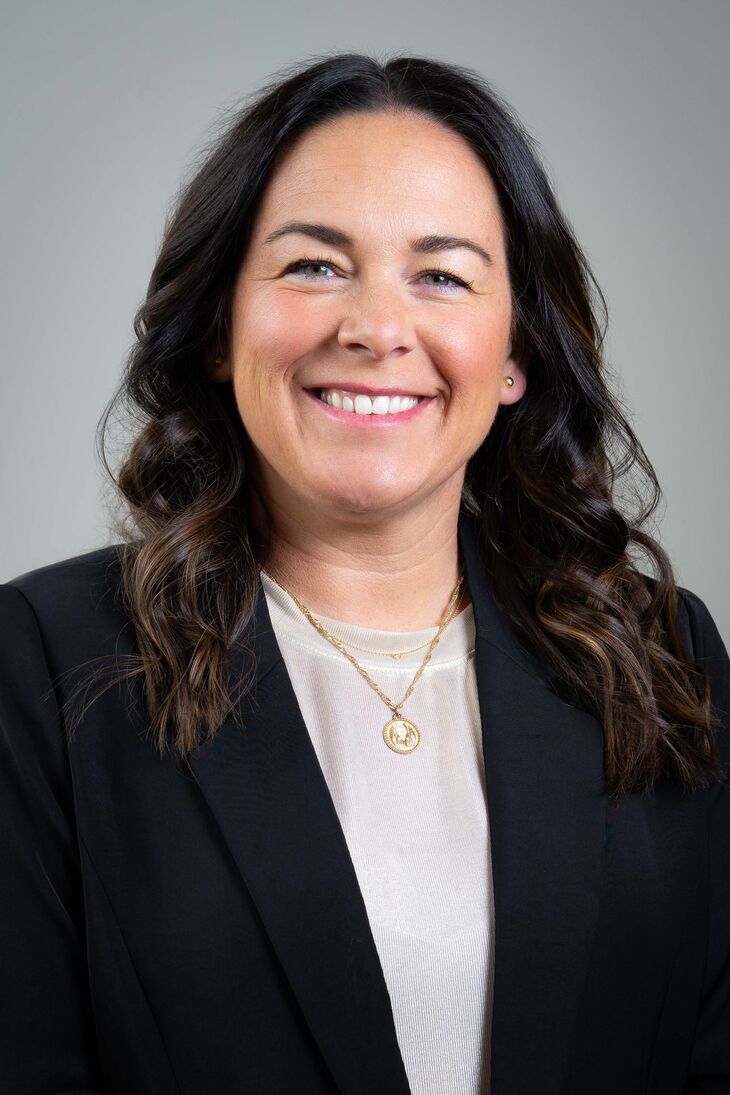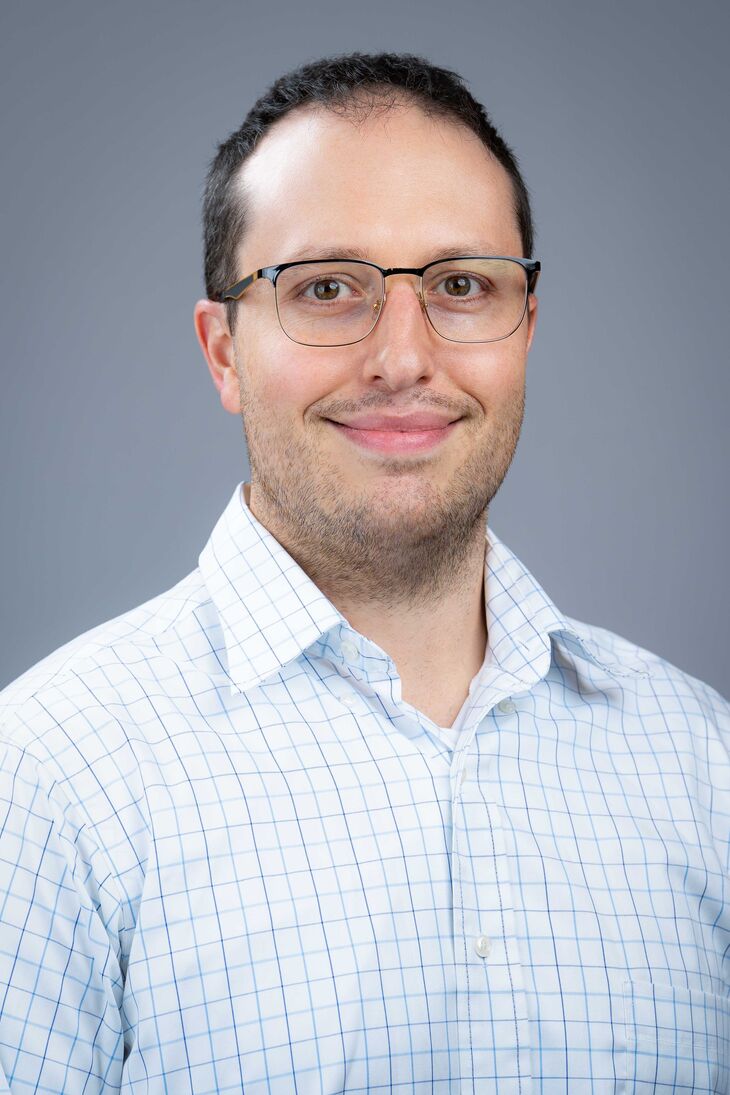
Nurse Anesthesia
Use your expertise to provide safe and effective anesthesia care to your patients.
The Nurse Anesthesia specialty track is the newest of 10 specialty tracks within our highly ranked BSN to DNP program and launched its first cohort in Autumn 2024. We are excited to bring this trusted, long-standing nursing specialty back to Ohio State and are looking forward to helping you gain the skills and competencies necessary to provide exceptional patient care and become eligible to be a Certified Registered Nurse Anesthetist (CRNA). CRNAs are advanced practice registered nurses (APRNs) who provide care in every setting where anesthesia is delivered—surgical suites, delivery rooms, ambulatory surgical centers, outpatient specialties—to patients across the lifespan.
This program delivers didactic content through a remote format that allows students to complete coursework from their home communities. Students will participate in scheduled on-campus experiences, including intensive skills weeks during the first year and simulation-based learning days during clinical courses in the second and third years. These immersive, hands-on sessions are pre-planned to support students in arranging travel to campus. In addition to this academic structure, students will engage in extensive, in-person clinical training at a variety of practice sites.
Faculty
Available Degree Programs
This specialty track can only be completed through the following program:
FORMAT AND CURRICULUM
Time to degree: 36 months of full-time study, including summers
Number of credits: 106 credit hours
Educational delivery format: The CRNA program combines online didactic delivery with in-person skills sessions and simulation seminars. On campus experiential learning is pre-scheduled throughout the entire curriculum so that students can plan ahead. Students will be required to travel to campus for intermittent skills weeks during their first year and intermittent simulation days for clinical courses each semester in years 2 and 3.
Courses will be taught synchronously online and can be taken from any state where the BSN to DNP program is currently authorized—the College of Nursing is an established and innovative national leader in distance education. Nurse anesthesia students will benefit immensely from the pairing of our well-established APRN curriculum and our exceptional specialty anesthesia education.
As noted above, intermittent, pre-scheduled on-campus skills and simulation intensives will be required. All clinical sites are currently in Ohio.
Courses and credits will be front-loaded in the first two years of the program in order for students to have adequate focus for clinical experiences in the final half of the program.
- Year 1
-
-
Autumn
Pathophysiology of Altered Health States (4)
MINDSTRONG (1)
Foundations of Evidence Based Practice (2)
Method/Measurement for the Evaluation for Evidence-Based Nursing (2)
Scientific Foundations of Nurse Anesthesia Practice (3)
Pharmacology for Nurse Anesthesia Practice (4)
Total credits: 16 -
Spring
Advanced Health Assessment (4)
Advanced Pharmacology in Nursing (4)
Advanced Physiology & Pathophysiology for Nurse Anesthesia Practice I (5)
Foundations of Nurse Anesthesia Practice* (3)
Total credits: 16 -
Summer
Clinical Reasoning with Diagnostic Methods for Advanced Nursing Practice (2)
Evidence Based Quality Improvement for the DNP (2)
Implementation and Evaluation of Evidence Based Practice (2)
Advanced Physiology & Pathophysiology for Nurse Anesthesia Practice II (4)
Introduction to Clinical Anesthesia (2)*
Total credits: 12
*Courses may include an in-person seminar, simulation and/or skills session in addition to distance education.
**Clinical course that will include an in-person seminar, simulation and/or skills session in addition to clinical practicum and distance seminar/integration.
-
- Year 2
-
-
Autumn
Leadership, Role, and Collaboration for the DNP (3)
Nursing Policy for Doctoral Nursing Practice (2)
DNP Professional Seminar: Scholarly Writing I (1)
Advanced Principles for Nurse Anesthesia Practice I (4)*
Nurse Anesthesia Clinical Practice I (5)**
Total credits: 15 -
Spring
Healthcare Economics and Finance for the Doctor of Nursing Practice (2)
Health Promotion, Theory, and Population Health (2)
Advanced Principles for Nurse Anesthesia Practice II (4)*
Nurse Anesthesia Clinical Practice II (5)**
Total credits: 13Summer
Health Informatics and Technology for the DNP (2)
DNP Systems Application I (2) 1 didactic, 1 clinical
Nurse Anesthesia Clinical Practice III (5)**
Total credits: 9
*Courses may include an in-person seminar, simulation and/or skills session in addition to distance education.
**Clinical course that will include an in-person seminar, simulation and/or skills session in addition to clinical practicum and distance seminar/integration.
-
- Year 3
-
-
Autumn
DNP Professional Seminar: Scholarly Writing II (1)
DNP Systems Application II (2)
Variable credit 1 didactic/1-4 clinical
Nurse Anesthesia Clinical Practice IV (5)**
Total credits: 8 -
Spring
DNP Final Document Project I (1)
DNP Systems Application III (2)
Nurse Anesthesia Clinical Practice V (5)**
Total credits: 8 -
Summer
DNP Final Document Project II (1)
DNP Systems Application IV (2)
Advanced Practice Nursing: Final Professional Seminar (1)
Nurse Anesthesia Clinical Practice VI (5)**
Total credits: 9
*Courses may include an in-person seminar, simulation and/or skills session in addition to distance education.
**Clinical course that will include an in-person seminar, simulation and/or skills session in addition to clinical practicum and distance seminar/integration.
-
Clinical Sites
New clinical sites are being evaluated and added all the time to meet the needs of our students and the program. All clinical sites are currently within the state of Ohio; students will work in more than one clinical sites per semester to broaden experience and achieve the specialty case mix you will be required to complete.
- View current list
-
- The Ohio State University Wexner Medical Center
- University Hospital
- East Hospital
- Eye and Ear Institute
- Richard M. Ross Heart Hospital
- James Cancer Hospital
- Outpatient Care New Albany
- Outpatient Care Dublin
- ProMedica Toledo Hospital
- Nationwide Children’s Hospital
- Adena Regional Medical Center
- Mercy Health Springfield Regional Medical Center
- Clinton Memorial Hospital
- Holzer Hospital Gallipolis
- Mercy Health Tiffin Hospital
- Blanchard Valley Health System—Findlay Surgery Center
- The Ohio State University Wexner Medical Center
State-Of-The-Art-Simulation
The Clinical Skills Education and Assessment Center (CSEAC) is an established, state-of-the-art training center simulating actual patient care experiences. The lab provides an as realistic as possible perioperative environment. Students are able to start learning the flow of an anesthetic setting and experience it before walking into it for the first time. This allows for almost immediate application of theory into a simulated practice environment.
Students can continue to practice in a low stakes environment, including crisis management. All evidence suggests that simulated experiences save lives, build confidence, and improve competence.
The lab is multidisciplinary and managed by a team of health sciences simulation professionals who understand best practices for simulation learning across disciplines. While perfectly suited to nurse anesthesia simulation, the lab’s opportunity for interdisciplinary simulation scenarios is particularly unique to Ohio State.
Rural Anesthesia and Health Equity
Certified Registered Nurse Anesthetists (CRNAs) have a longstanding commitment to improving access to anesthesia care for some of the most marginalized populations, including those who are uninsured, eligible for Medicaid, or unemployed. In fact, CRNAs deliver over 80% of anesthesia services in rural counties across the country—a model that is 25% more cost-effective than the next least costly option. Studies consistently show that CRNAs provide safe, high-quality care with high patient satisfaction, especially in communities that need it most.
Our program stands out by emphasizing a commitment to exposing students to the excellent anesthesia care in rural Ohio, beyond the reach of large metropolitan centers. Every student will complete a clinical rotation in a rural setting. We’re also dedicated to recruiting students from rural backgrounds who aspire to return and make a difference in their communities after graduation.
Health equity is woven throughout our curriculum as a core principle, shaping the way our students are educated to consider and address the diverse needs of all patient populations. From understanding social drivers of health to applying culturally informed practices, students learn to approach care with a deep commitment to equity and accessibility. This focus ensures our graduates are prepared not only as skilled clinicians but as advocates for equitable healthcare wherever they practice.
Admissions Information
The Nurse Anesthesia specialty track is part of the BSN to DNP program. Admission information for the BSN to DNP program can be found here.
If you applied for Autumn 2026, please review the admissions timeline here.
A limited number of DNP applicants to the Nurse Anesthesia specialty track will be offered a second-round interview. If selected, the second-round interview will take place virtually (via Zoom) for 30 minutes on either December 3, 4 or 5, 2025. If you are selected for a second-round interview you will receive this invitation via email by November 21, 2025. Not all applicants will move forward and be offered the chance to participate in a second-round interview. Official admission decision notifications will be sent via email by late December 2025. You are encouraged to check the status of your application anytime by logging into appstatus.osu.edu. If you applied as a Graduate Intra-University Transfer student, email nursing@osu.edu to check your application status.
If selected for the DNP-Nurse Anesthesia track, you must register for your courses or communicate with the Nurse Anesthesia Specialty Track Director by July 15 about any extenuating circumstances. Failure to adhere to this requirement will result in your withdrawal from our DNP Program and admission of a waitlist candidate.
Nancy A. Moriber, PhD, CRNA, APRN, FAANA, who serves as an associate clinical professor at the College of Nursing, offers advice on making your application stand out in the November 2023 article, "How to Get into CRNA School: Advice from a CRNA Program Instructor" in NurseJournal.
Overview Sessions
FAQs
- Is the Nurse Anesthesia specialty track accredited?
-
The Nurse Anesthesia specialty track in the BSN to DNP program at The Ohio State University College of Nursing has been accredited by the Council on Accreditation of Nurse Anesthesia Educational Programs.
Contact information:
10275 W. Higgins Rd., Suite 906 Rosemont, IL 60018-5603 224-275-9130
https://www.coacrna.org/ - I am an RN with an associate’s degree in nursing and a Bachelor of Science degree in another field. Can I apply to your program?
-
The Ohio State College of Nursing BSN to DNP program requires a Bachelor of Science in Nursing (BSN) or a Master of Science in nursing degree for admission.
- What is considered “critical care experience”?
-
For Nurse Anesthesia specialty track applicants: A minimum of one-year full-time, recent (within 2 years of application) work experience, or its part-time equivalent, as a registered nurse in a critical care setting is required by the COA. Competitive applications will have at least one-year of this experience.
- Through this experience, you must have developed as an independent decision maker capable of using and interpreting advanced monitoring techniques based on knowledge of physiological and pharmacological principles.
- Critical care experience must be obtained in a critical care area within the United States, its territories, or a US military hospital outside of the United States. During this experience, the registered professional nurse has developed critical decision making and psychomotor skills, competency in patient assessment, and the ability to use and interpret advanced monitoring techniques. A critical care area is defined as one where, on a routine basis, the registered professional nurse manages one or more of the following: invasive hemodynamic monitors (e.g. pulmonary artery, central venous pressure, and arterial catheters), cardiac assist devices, mechanical ventilation, and vasoactive infusions. Examples of critical units may include but are not limited to: surgical intensive care, cardiothoracic intensive care, coronary intensive care, medical intensive care, pediatric intensive care, and neonatal intensive care. Those who have experiences in other areas may be considered provided they can demonstrate competence with managing unstable patients, invasive monitoring, ventilators, and critical care pharmacology.
- I will complete the one year of critical care experience during the first semester of the program. Is this acceptable?
-
The one year minimum of critical care experience is an admission requirement and so must be completed prior to the application deadline.
- How many students will you admit?
-
The inaugural 2024 cohort will be 15 students. Cohort sizes will be continually reevaluated to assure high quality instruction and access to clinical experiences. We anticipate a highly competitive pool of applicants.
- Is a course in organic chemistry or physics required for admission to your program?
-
A specific course is not required. It is assumed that in your undergraduate program you completed a course in health sciences chemistry, which will serve as a foundation for program coursework. Successful candidates will have demonstrated prior achievement in the basic sciences.
- How long is the program?
-
The nurse anesthesia specialty track within the BSN to DNP program is 36-months, full-time. This includes summer semesters. There is no part-time option for the Nurse Anesthesia track.
- Is it possible to work during the program?
-
The decision to work during the program is an individual one but is not recommended. As the program is only offered in a full-time format, the number of credit hours each semester varies but is as high as 15+ credits per semester. Once the clinical component begins in the third semester, students are in class one full day and in the operating room four full days with care plans and coursework that must be completed in the evenings and on weekends. The workload of the program makes it very difficult to work. Nurse Anesthesia specialty track guidelines also restrict clinical practice before and after a program-related clinical shift, requiring at least eight (8) hours of rest between clinical responsibilities.
- Can I begin taking courses before being accepted into the program?
-
You can apply to take up to ten credit hours as a non-degree student without matriculating into the graduate program. The successful completion of these courses does not, however, give you an advantage over other applicants to the program. Please visit the Graduate Non-Degree webpage for instructions on how to apply as a non-degree student and request to take classes prior to admission to the BSN to DNP program.
- I have taken a course that I think is the same as one of your courses. Do I have to retake the course at Ohio State?
-
We can review your completed graduate nursing coursework after you are offered admission to the program, determining what can be applied to the program’s requirements.
- I am currently working at a hospital that will allow me to go there for my clinical anesthesia experience. Is this allowed?
-
No, students may not propose a clinical site. The Council on Accreditation of Nurse Anesthesia Educational Programs accreditation process and policy requires that clinical sites must be determined by the program and then approved with an application process.
- May I choose the clinical sites I attend from those approved by the program?
-
No. Clinical site rotations are at the discretion of the program leadership and are determined based on distributing clinical experiences so that all students complete required case numbers.
- Do I need to relocate to Columbus, Ohio to successfully complete the program?
-
The didactic portion of the program is delivered online; however, there are skills seminar weeks and simulation sessions that will occur intermittently throughout the program. Students will be made aware of in-person program responsibilities in advance. All clinical sites are currently located throughout the state of Ohio. The primary clinical site regions are northwest Ohio and Central/Southern Ohio. While students will have primary clinical sites, they will be expected to rotate to a variety of sites to obtain the necessary clinical experiences to successfully complete the program.
- Will I obtain experience in regional anesthesia?
-
The Council on Accreditation of Nurse Anesthesia Educational Programs requires a certain number of regional anesthesia experiences and therefore you will obtain this experience.
- Does the program offer a stipend?
-
The program does not offer a stipend.
- Is financial aid available?
-
Most financial aid is in the form of student loans. Please visit the Financial Aid webpage for more information on available resources to support the cost of your education.
- What are the tuition costs?
-
Due to the unique nature of nurse anesthesia education, a differential fee structure will be assessed to Nurse Anesthesia specialty track students in addition to base tuition. You can find more information about tuition and fees at: Tuition and Fees - BSN to DNP CRNA Specialty Track | Ohio State Online (osu.edu).
- I do not have a current Ohio nursing license; can I still apply?
-
A current Ohio nursing license is required by August 1 prior to beginning the program, though is not needed for consideration to the program.
- I do not have ACLS or PALS; can I still apply?
-
Current ACLS and PALS certifications are not required to apply but successful completion is required by the student’s second semester prior to entering the clinical environment. ACLS and PALS maintenance certification is required for the duration of the program.
- Will I require additional malpractice insurance?
-
Students are required to obtain a student malpractice insurance policy by the second semester prior to entering the clinical environment. Maintenance if this policy is required for the duration of the program. Please visit CRNA Malpractice Insurance Coverage | AANA Insurance Services for more information about the preferred student malpractice carrier.
- What is the best way to prepare for the program?
-
Applicants are encouraged to become excellent, expert critical care nurses. Participate in unit-based activities, seek certifications like the CCRN, and dedicate yourself to the profession. It is highly desirable that an applicant shadowed a CRNA for more than a single anesthetic case. Once admitted, we encourage incoming students to take time to enjoy life. The journey of nurse anesthesia education will be time consuming and requires great focus. Use the time before beginning the program to relax and spend time with family and friends!
Didn't see what you were looking for? FAQs applicable to all BSN to DNP applicants, can be found here.
Accreditation
The Nurse Anesthesia specialty track in the BSN to DNP program at The Ohio State University College of Nursing has been accredited by the Council on Accreditation of Nurse Anesthesia Educational Programs.
Contact information:
10275 W. Higgins Rd., Suite 906
Rosemont, IL 60018-5603
224-275-9130
coacrna.org





